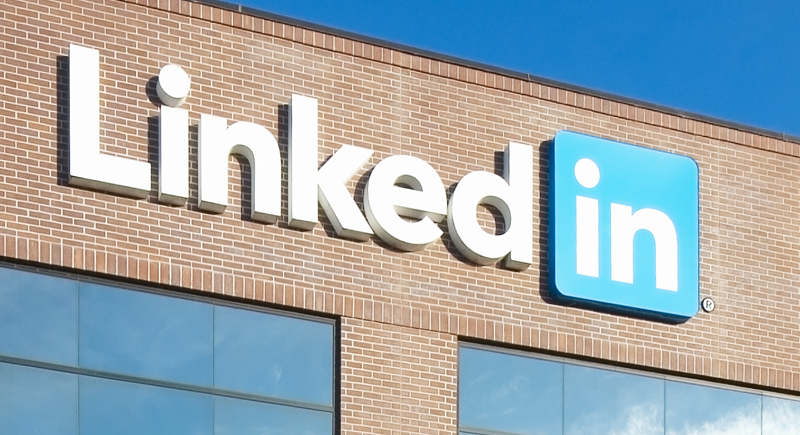Looking for Your First Job? 13 Tips That Can Help You Get It
Landing that first job starts with figuring out what actually works for you. Everyone’s got opinions, the advice can contradict itself, and you’re left wondering where to even begin. If the job hunt feels confusing or like you’re missing some secret rulebook, you’re not alone.
These practical tips make it easier to start strong and avoid common early mistakes.
Start With Your School’s Built-In Help

Credit: Getty Images
Your campus career office often has hidden perks, such as alumni connections and job boards that you won’t find elsewhere. Even the staff can help you build up the right portfolio and pinpoint résumé mistakes. It’s one of the few places where asking for help doesn’t make you feel like a beginner.
Use Social Media to Research

Credit: Wikipedia Commons
LinkedIn and other platforms give you a peek at company values, team dynamics, and even recent hires. Those clues help you prep smarter. Just make sure your own profile’s not frozen in high school club president mode before you start snooping.
Reach Out to Learn

Credit: Getty Images
If you message someone you admire, focus on their path, not what they can do for you. Ask how they got started or what surprised them about the job. It’s a better conversation starter and often leads to more useful insight than a cold request for help.
Build Relationships

Credit: pexels
If you meet someone helpful, stay in touch. It could be as simple as commenting on their posts, sending an update, or thanking them for past advice. The real magic of networking comes from being remembered, not just introduced.
Ask Around—Casually Counts Too

Credit: Getty Images
You don’t need to attend a conference to build a community. Let people in your orbit know you’re looking and see it work like magic. It could be anyone: a neighbor, professor, or classmate. Sometimes, even the most unexpected person might have a lead. A quick “Let me know if you hear of anything” can set things in motion.
Understand the Role Before You Walk In

Credit: baseimage
Before any interview, do your homework like your next rent depends on it. Read between the lines of the job post, check what similar roles look like on LinkedIn, and prep your answers with that knowledge in mind. Employers notice when you’ve put in that level of prep, and the better your prep, the better your chances.
Tailor Your Approach to Each Employer

Credit: Getty Images
That résumé you sent to five places is probably too generic and may not work everywhere. Different workplaces value different traits. A fast-growing startup may want flexibility; a traditional firm might prefer precision. Align your examples and language with the vibe of the company you’re applying to.
Highlight Skills That Don’t Require a Paycheck

Credit: Getty Images
If you’ve ever led a campus group, organized a fundraiser, or kept your family’s finances running, you’ve got experience. Employers care more about what you did and learned. What matters is how you explain the skills you used—communication, problem-solving, planning—and how they apply to the job you want.
Be Yourself—Professionally

Credit: Getty Images
You don’t have to perform some hyper-polished version of yourself in interviews. Remember, interviewers are trying to picture working with you, so being over-efficient might deduct points. Be prepared, be curious, and let your personality show through in small ways.
Shift the Focus From Pressure to Choice

Credit: Getty Images
Jobs can feel like one-way doors, but don’t forget you’re choosing them too. What kind of boss do you want? What kind of learning pace suits you? That shift in mindset can make you more confident and clear in your decisions.
Don’t Wait to Be Perfect to Apply

Credit: Getty Images
If a posting makes you 80% excited and you tick off most of the boxes, apply. Employers often post wish lists, not checklists. Curiosity and willingness to learn can fill in the rest, especially if you show them how you’ve picked things up fast in other settings.
Gain Experience Anywhere You Can

Credit: pexels
You don’t need your dream job on the first try. Jobs in retail, food service, or admin roles build transferable skills like time management and teamwork. These are the experiences that build your work ethic, and they often lead to new opportunities.
Dress for the Setting

Credit: Getty Images
Look into what people wear at the job you’re applying for, then aim one step above it for the interview. This shows respect for the process without overdoing it. Your goal is to look like someone who already belongs on the team.
Send a Thoughtful Follow-Up

Credit: Getty Images
A thank-you note matters, but don’t stop there. Mention something you enjoyed discussing, or a question you’ve been thinking about since the interview. That kind of personalized follow-up helps you stick in the interviewer’s mind longer than a generic thanks.
Edit Like It’s Your Final Exam

Credit: Getty Images
Read your résumé out loud, ask a friend to review it, and give it a final look the next day. No one’s expecting the perfect document. They just want to see you put effort into something that represents you. That’s a baseline worth hitting.